Believe it or not, it can be pretty difficult growing vegetables without using animals. Which seems silly, if you ask me, but what do I know? That’s just the way it is, making the garden one more place that vegans and eco-conscious folks need to be a bit mindful.
Veganic Gardening is a gardening philosophy that incorporates organic gardening techniques while also eschewing all animal products and byproducts. And unfortunately, these days, that can be kind of tricky. But it’s doable! Definitely doable.
The three main considerations when planning a veganic garden are soil, soil amendments, and fertilizer.


1. Soil
I’ve investigated every nursery and hardware store in my town, and I’ve only found two types of animal-free soil/potting soil. Actually, and surprisingly, I think finding appropriate soil may be the biggest hurdle for people wanting to practice veganic gardening (although this will depend on where you live and thus, what kind of access you have to various brands of soil). Because most commercial soil and potting soil mixes contain at least one or more of the following: manure, chicken manure, feather meal, fish, fish bone meal, shrimp meal, blood meal, bat guano, oyster shell, vermiculture compost, and earthworm castings, to name a few.
As far as veganic soil goes, the brand I favor is called Gardener’s, and the only ingredients are aged forest compost, perlite, and washed horticulture sand. Unfortunately, I’m not sure how widely available this brand is (it’s not on Amazon).
The other vegan soil I found in my area was by Miracle Grow, and although it contained no animal products, it was also full of the nasty chemical fertilizers that I avoid. So that was a no-go for veganic gardening.
My best suggestion, as far as finding veganic soil in your area, is to call around and ask for the Gardener’s brand. If you can’t find it you’ll have to do what I did: go to every single nursery and read the back of every single bag. Which is really not as bad as it sounds. I mean, at least you get a trip to the nursery out of it. Buy yourself a pretty new plant!
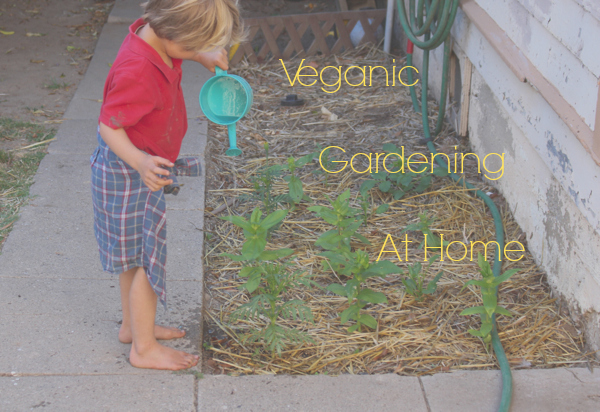
2. Amendments
Depending on your soil quality, you may want to add “boosters”, or amendments, to your garden. Many of these are not vegan – but some of them are! Vegan friendly amendments include:
- Sphagnum Peat (Mountain Peat is very unsustainable and should be avoided)
- Limestone
- Dolomite Lime
- Alfalfa/Alfalfa Meal
- Coffee Grounds
- Greensand
- Phosphate Rock
- Potash Rock
- and finally my favorite, Compost! (from vegan homes, of course)
These are the non-vegan soil amendments that should always be avoided:
- Manure
- Compost Manure
- Blood Meal
- Bone Meal
- Fish Meal/Fish Fertilizer
These may or may not be vegan, and should be investigated by brand before you purchase:
- Humus
- Soil or Topsoil
- Mushroom compost (this is intended for mushrooms, not made from mushrooms)
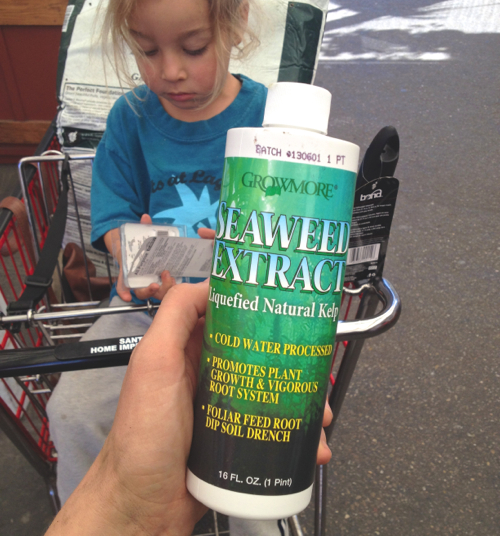
3. Fertilizer
Fertilizers are food for plants, offering a wide spectrum of necessary nutrients. The most common commercial veganic fertilizer is concentrated seaweed, which is positively brimming with vitamins and minerals. There are many brands of seaweed (sometimes just called kelp) fertilizers and these are widely available. I’ve used the Growmore brand for years, and recently Jeremy picked up this Organix Rx on super sale. Both are awesome.
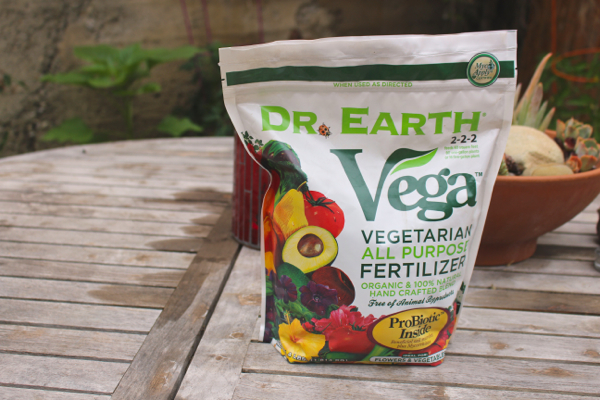
As for more a traditional fertilizer, I’ve been using this Dr. Earth Vega animal-free mix to make a fertilizer tea, and it’s been fantastic! This stuff is amazing and I highly recommend it. You should be able to find it in your local nursery, but if you can’t get it locally there’s always Amazon.
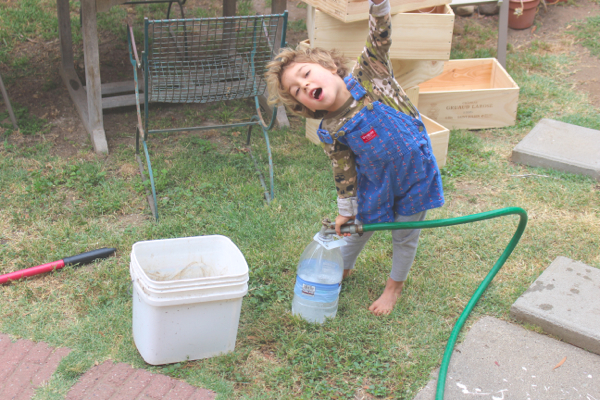
Soil, amendments, and fertilizer. That’s about all there is to creating an incredible, cruelty-free, and eco-friendly home garden. Not so bad, right?
And to all you amazing veganic home gardeners out there reading (I know you’re there!), please share your best tips and favorite products in the comments below, so we can all learn from each other. Sharing is caring, y’all!
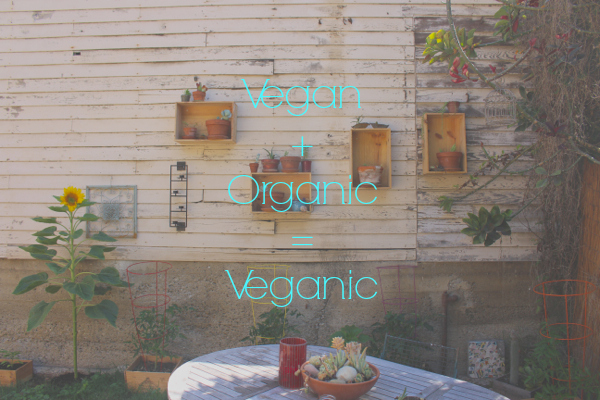



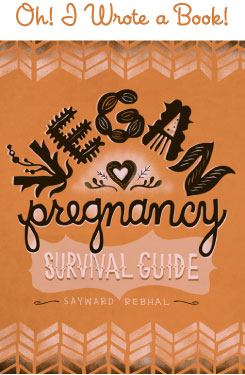
Pingback: What Are The Ecological Problems Of Exploiting Animals Merely For Our Pleasure Or Convenience? | The Legacy Of Pythagoras
Pingback: Quora